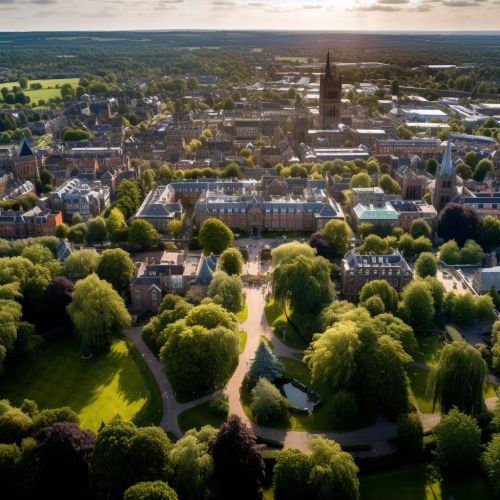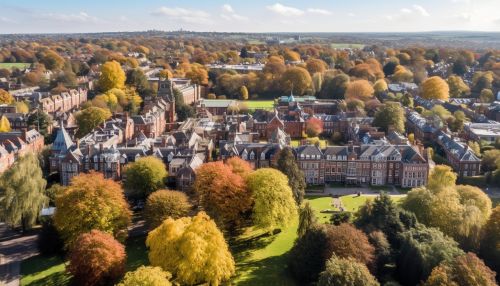Cambridge University
History
The University of Cambridge, often referred to as Cambridge University, is a collegiate public research university in Cambridge, England. Founded in 1209 and granted a royal charter by King Henry III in 1231, Cambridge is the second-oldest university in the English-speaking world and the world's fourth-oldest surviving university.


The history of the university is intertwined with the history of England itself. The university grew out of an association of scholars who left the University of Oxford after a dispute with the townspeople. The two 'ancient universities' share many common features and are often referred to jointly as 'Oxbridge'. The academic standards, history, influence and wealth of the University of Cambridge has made it one of the most prestigious universities in the world.
Colleges
The university is made up of 31 constituent colleges and over 100 academic departments organised into six schools. The colleges are self-governing institutions with their own endowments and property, largely independent of the university. The university does not have a main campus, and its colleges and central facilities are scattered throughout the city.
Each college is an independent institution with its own property and income. The colleges appoint their own staff and are responsible for selecting students, in accordance with university regulations. The teaching of students is shared between the colleges and university departments. Degrees are awarded by the university.
Academics
Cambridge is a member of several academic associations and forms part of the 'golden triangle' of English universities. The university is home to over 18,000 students and 9,000 staff. It has 31 colleges, 150 departments, faculties, schools and other institutions.
The university's endowment is one of the largest of any university in the world and provides significant funding for its individual colleges. Cambridge is a member of the Russell Group of research-led British universities, the G5, the League of European Research Universities, and the International Alliance of Research Universities, and forms part of the 'Golden Triangle' of research intensive and southern English universities.
Research
Cambridge has been highly ranked by most international and UK league tables. The university has the highest endowment of any university outside the United States and the sixth-largest globally. The university is closely linked with the development of the high-tech business cluster known as 'Silicon Fen'.
The university has educated many notable alumni, including eminent mathematicians, scientists, politicians, lawyers, philosophers, writers, actors, monarchs and other heads of state. As of October 2020, 121 Nobel laureates, 11 Fields Medalists, 7 Turing Award winners, and 14 British Prime Ministers have been affiliated with Cambridge as students, alumni, faculty or research staff.
Student Life
Student life at Cambridge is rich and diverse, with numerous societies and clubs available to students, ranging from political and cultural to sporting and recreational. The university's sporting success is underscored by the annual Boat Race against Oxford, a tradition since 1829.
The Cambridge Union Society, a debating society, is the oldest in the world. The Marlowe Society is a theatre club dedicated to the works of playwright Christopher Marlowe. The Cambridge University Orchestra, first conducted by composer Ralph Vaughan Williams, has been performing since 1827.
